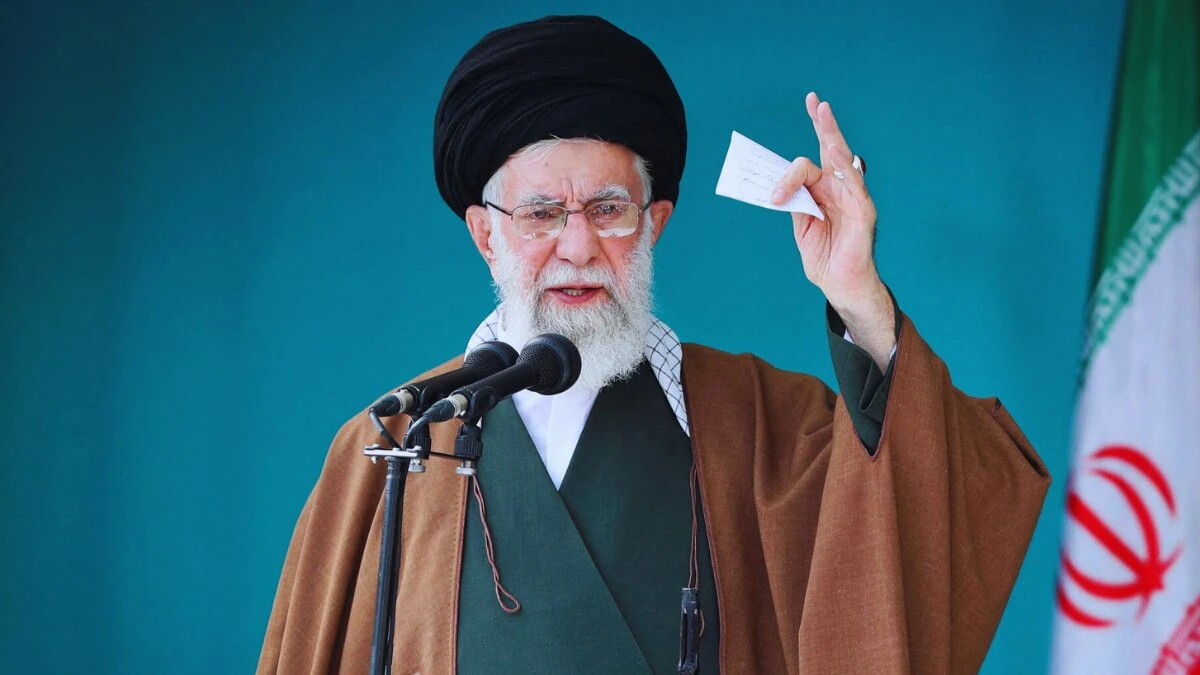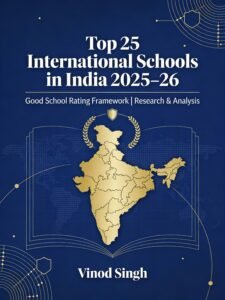India Condemns Supreme Leader Ayatollah Ali Khamenei’s ‘Unacceptable’ Remarks on Muslim Community
India Condemns Supreme Leader Ayatollah Ali Khamenei’s Remarks on Muslim Community, Calls Comments ‘Unacceptable’
India has strongly rebuked recent remarks made by Iran’s Supreme Leader Ayatollah Ali Khamenei, regarding the treatment of the Muslim community in India. On Monday, the Ministry of External Affairs (MEA) issued a formal statement categorically condemning Khamenei’s comments as “unacceptable.” This rare diplomatic clash has the potential to strain India-Iran relations, which have been shaped by mutual interests in regional stability, energy cooperation, and trade.
Supreme Leader Ayatollah Ali Khamenei’s Remarks Spark Controversy

Supreme Leader Ayatollah Ali Khamenei, one of the most influential figures in the Islamic world, made a controversial statement on social media, where he listed India alongside the Gaza Strip and Myanmar as regions where Muslims are allegedly facing persecution. In his message, Khamenei urged the global Islamic community to not remain “indifferent” to the plight of Muslims in these areas. The Supreme Leader Ayatollah Ali Khamenei’s comments ignited immediate concerns within Indian diplomatic circles, as it placed India in a sensitive geopolitical position.
Supreme Leader Ayatollah Ali Khamenei’s remarks are seen by India as a gross misrepresentation of the country’s internal affairs, particularly in the context of the treatment of its Muslim population. India, a secular democracy with a large and diverse Muslim community, took offence to being grouped with regions experiencing prolonged conflict and human rights crises.
India’s Strong Rebuttal
The Indian government responded swiftly and firmly. The Ministry of External Affairs issued a statement calling Supreme Leader Ayatollah Ali Khamenei’s remarks “unacceptable” and expressed strong disapproval of the supreme leader’s attempt to cast India in a negative light. The MEA’s statement reiterated that India is committed to the welfare of all its citizens, regardless of religious background, and described Khamenei’s comments as interference in India’s internal matters.
A spokesperson for the MEA emphasized that “India is a pluralistic society where all communities enjoy constitutional rights and freedom. It is inappropriate for external parties to make statements that question India’s internal affairs or aim to polarize society.”
Potential Impact on India-Iran Relations
This diplomatic exchange has sparked concerns over the potential fallout between India and Iran, two countries that have historically maintained cordial ties. India is one of Iran’s major energy partners and has played a key role in the development of Iran’s Chabahar Port, a crucial trade route for India that bypasses Pakistan. The two nations also share cultural and historical connections dating back centuries.
However, Supreme Leader Ayatollah Ali Khamenei’s comments come at a time when India’s foreign policy is increasingly focused on maintaining a balanced relationship with both Middle Eastern and Western powers. India has been navigating complex international relationships, especially as it seeks to bolster ties with Gulf nations, the United States, and Europe while also preserving its longstanding partnership with Iran. Diplomatic tensions arising from these recent remarks could complicate India’s efforts to maintain this balance.
Broader Context: India’s Muslim Population

The inclusion of India in Supreme Leader Ayatollah Ali Khamenei’s statement has brought renewed attention to the country’s internal dynamics concerning its Muslim population, which constitutes about 14% of the total population, or roughly 200 million people. India, as the third-largest Muslim-majority nation in the world, takes great pride in its secular constitution, which guarantees equality and religious freedom to all citizens.
Nevertheless, there have been instances of communal tensions in recent years that have drawn international attention. Some international bodies and governments have expressed concerns over certain domestic policies and events related to India’s Muslim community. However, the Indian government maintains that these issues are internal matters and do not reflect systemic discrimination, but rather isolated incidents that are addressed within the country’s legal framework.
International Reactions and Future Outlook
Supreme Leader Ayatollah Ali Khamenei’s statement has stirred mixed reactions globally. While some in the Islamic world have echoed concerns about the treatment of Muslims in India, others have pointed out that Khamenei’s remarks may have been motivated by political interests, particularly in his effort to assert Iran’s leadership in the Islamic world.
For India, maintaining its stance on the issue while ensuring diplomatic ties with Iran remain intact will require careful diplomacy. India is expected to continue emphasizing its commitment to its pluralistic and democratic values while seeking to avoid a deeper escalation in tensions with Iran.
As the global community watches closely, the long-term impact of this diplomatic spat remains uncertain. What is clear, however, is that India’s position on protecting its sovereignty in the face of external comments about its internal affairs is unwavering. This situation is a reminder of the delicate balance that India must maintain in its foreign relations, particularly with influential voices in the Islamic world.
More Articles
Outrage Erupts Over Vandalism at BAPS Swaminarayan Temple in New York: A Call for Justice
Asteroid 2024 ON, the Size of Two Cricket Grounds, Set for Safe Earth Flyby—Speed Sparks Concerns
Galwan Valley Tensions Ease: Troop Disengagement in Eastern Ladakh Signals Stability
West Bengal Mamata Banerjee Appeals to Protesting Doctors, Admits ‘Couldn’t Sleep Last Night’
Bangladesh Government Calls for Halt to Durga Puja in Bangladesh Activities During Azaan and Namaaz
Kolkata Doctor Case: Rising Tensions Between Junior Doctors and Mamata Banerjee Government
Sams Pitroda Revives ‘Pappu’ Tag: Rahul Gandhi’s Journey from Mockery to Leadership
PM Modi Singapore Visit: A Game-Changer for India’s Semiconductor Ambitions
Iran Nuclear Diplomacy: Supreme Leader Signals Openness to U.S. Talks, Ushering in a New Era
CJI DY Chandrachud Targeted: Supreme Court Files Cyber Crime Complaint Against Impersonator
Ritabhari Chakraborty Speaks Out: A Courageous Stand Against Early Career Harassment
Victoria Monét Unveils Sensual New Single ‘SOS’ with Usher Collaboration
Ben Affleck and Jennifer Lopez Divorce: The End of a High-Profile Romance
Disney Reveals Captivating Teaser for Live-Action “Snow White” Starring Rachel Zegler and Gal Gadot
Discover more from
Subscribe to get the latest posts sent to your email.










